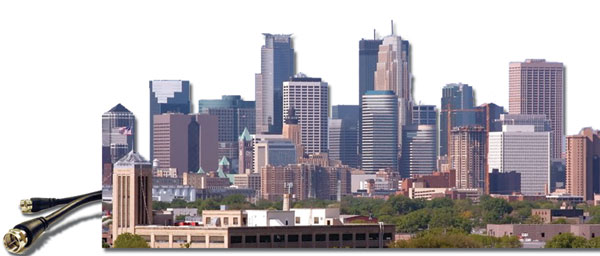Agreement stipulates that if Comcast and Time Warner merge, ‘prices don’t go up’
The City of Minneapolis may get at least $50,000 worth of free cable services and equipment, thanks to a new deal with Comcast. According to Comcast Vice-President Mary Beth Schubert, the deal, which was recently approved by the Minneapolis City Council, is like similar others “in a number of different areas within our service area.”
It also includes that the City’s nine access channels will not be eliminated, three “complementary digital converters” in 30 municipal buildings along with 40 HD converter boxes to be placed “at the City’s discretion,” and $1.50 “Public, Education and Government [PEG]” monthly fee per subscriber, on which, according to the City, Comcast may have “under-collected” and is expected to go up to $1.75.
Comcast customers are charged the PEG fee in their monthly bill statement. The settlement agreement also includes the city council and the mayor approving a resolution that if the merger with Time Warner is approved, Comcast will spin off “several million subscribers and move them to a new cable provider” and amend the current franchise agreement, says a City fact sheet.
Industry analysts see this as an effort to help speed up approval for the merger, which would make Comcast-Time Warner the largest cable company in America. It is now awaiting federal regulatory approval.
Minneapolis City Spokesman Matt Laible told the MSR that it is a conditional agreement. “If the Comcast-Time Warner merger doesn’t happen, it goes away,” he pointed out.
When asked how the agreement benefits Minneapolis residents, Schubert noted that Comcast has many municipal franchise agreements “and sometimes they might include complementary services to schools, libraries and [similar] types of facilities.” Comcast also is paying Minneapolis $40,000 in overdue franchise fees.
“We had identified this error [after conducting an audit] and brought it to their attention,” explained Schubert. “We take our obligation very seriously and we were happy to pay the fee. Comcast pays millions of dollars every year to the City. This payment is less than one-half of one percent of the total being paid.”
The cable company, both locally and nationally, has been known for poor customer service. A 2014 Federal Communications Commission (FCC) report also pointed out that the average monthly price of “expanded basic cable” increased five percent and the average price per channel was up two percent in 2013. Overall, the average price of cable has increased from $22 to $64 over an 18-year period (1995-2013).
“We don’t have any legal authority to regulate prices for cable,” added Laible. However, if the merger is completed and city customers are transferred to the new proposed company, it is stipulated in the agreement that “prices don’t go up” as a result, he noted.
“We work as hard as possible to keep prices as low as possible,” stated Schubert. “We provide a lot of packages and offers that we hope meet our customers’ needs.
“We’re constantly either listening to feedback from our customers or enhancing our products as much as possible to make sure that we are meeting the continual changing demand that our customers have,” said the Comcast vice-president. “We do have our Internet Essentials program that is available throughout our service territory. That is a low-cost Internet price for students that are on free or reduced lunch.”
Schubert said, “What we encourage as much as possible to our customers [is to] call us so we can make sure that customers’ needs are aligned with the package that they are either paying for or the package that they want.”
Charles Hallman welcomes reader responses to challman@spokesman-recorder.com.

